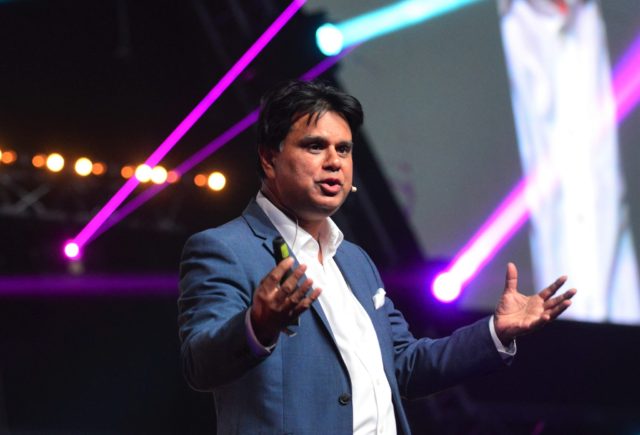Health is so important to all of us, it requires change. How do we create a better future for all of us?
In healthcare around the world there’s change in quality, sometimes poor access.
How do we enable technology to deliver the things that we all aspire? – to make healthcare free for all at a high quality. That’s the role of Health.Summit chaired by prof. Shafi Ahmed.
Medicine is the perfect example of how the fourth industrial revolution is changing all of us.
What about Europe?
We need data and insights on the health of European citizens, on how we organize care, and on how much our health systems cost.
The EC joined forces with the OECD and the Observatory on Health Systems and Policies, and analyzed each EU country. The reports show that our healthcare needs to be more effective, accessible and resilient. For example, 80% of healthcare costs are spent on treating chronic diseases, but just a fraction on prevention. Shifting on prevention not only tackles inequalities in health and quality of life, but also offers an enormous economic return.
Today, one in four patients have no access to a family doctor or a local health center, and have to go to an emergency department. With available and affordable primary care we can avoid unnecessary hospital admissions. Too often patients are searching for the best possible treatment in a maze of scattered health services. Integrated care, where all care providers work more closely together delivers better results for patients. “The state of Health” in the EU links the strengths and challenges in the different European countries to common health priorities across the EU. The reports help policymakers make relevant and efficient choices so all of us can enjoy a healthy future.
Teaching tens of thousands of people together to improve the education resources.
As a global surgeon prof. Shafi Ahmed thinks about how to scale the learning and education around the world. Now we are connected with cables, by phones and satellites. And because we are connected now we can reach far more. We have social media to connect with people. We are changing the paradigm of the doctor-patient relationship using AI, chat bots, deep machine learning, avatars and holograms. In the next 2-5 years we are going to communicate in a different way. The human interaction will little bit disappear because it is too expensive.
I thought “How can I connect with people around the world? Let’s connect my avatar with other avatars in America, in India. Can they come to my theater together in this virtual space? They call me the Virtual Surgeon.
Imagine someone operating on the other side of the globe, calling you and saying: “I need some advice, can you come?” Plane travel – too long, inefficient. What about transporting yourself as a hologram?
Shafi Ahmed has been spending a lot of time talking about how we use technologies in a way that we haven’t done before. And at Webit.Festival Europe 2018 he announced that he and Mr. Martin Dockweiler are launching the first digital hospital in South America.
The hospital will be called SAMD (Shafi Ahmed Martin Dockweiler) University Hospital. It will have a center of innovation, research, teaching. They will be testing new technologies.
The future is not today or tomorrow. It’s happening all around us as we speak. And that is the future we create for ourselves.
